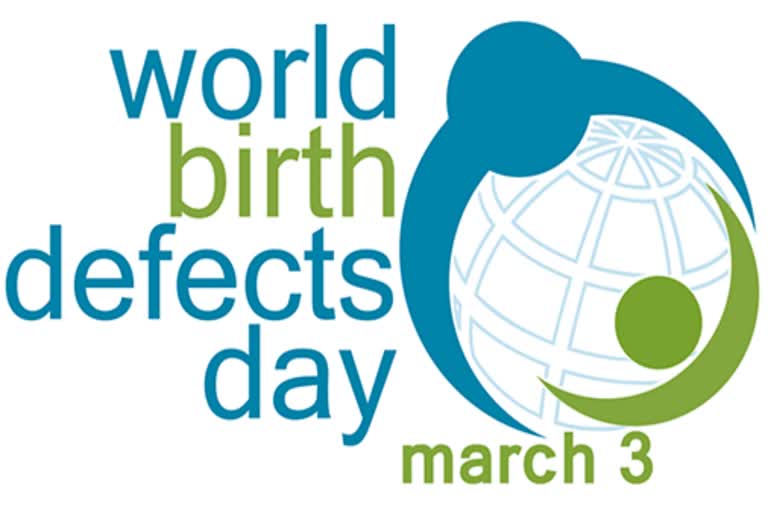Hyderabad: According to the World Health Organisation, around eight million newborns are born with birth defects every year globally. This figure reaches more than 1.7 million in India. Birth defects or congenital anomalies affect babies regardless of their place of birth, race or ethnicity, and are considered one of the leading causes of death among newborns and young children worldwide according to the CDC (Centre for Disease Control). It is a matter of concern that even if children recover from these anomalies, many of them may have to face lifelong disabilities.
“World Birth Defects Day” is observed every year on March 3 to unite people and organizations working in the field of birth defects, and spread awareness among the general public about congenital anomalies, especially their prevention, monitoring and care. Congenital anomalies can include many types of birth defects.
A congenital anomaly is a condition when the child is born with some defect, malformation, disorder or disease. The most commonly reported congenital anomalies are cleft lip or palate, Down syndrome, congenital deafness, Trisomy 18, clubfoot, heart defects, neural tube defects, sickle cell anaemia, cystic fibrosis, chromosomal abnormalities, etc.
Congenital anomalies can usually be attributed to one or more genetic problems, some kind of disease/infection in the expectant mother or the child in the womb, or lack of nutrition and some environmental factors. The factors responsible for different types of defects can also be different.
According to the WHO data, in the South-East Asia region, birth defects are the third most common cause of child mortality and the fourth most common cause of neonatal mortality, which is about 12 per cent of all neonatal deaths. As per the available information, between 2010 and 2019, the ratio of birth defects to child mortality increased from 6.2 per cent to 9.2 per cent in these regions. In 2019, birth defects accounted for 1,17,000 deaths.
Also read:Rare Disease Day 2023: "Share Your Colours"
On the occasion of World Birth Defects Day, Dr Poonam Khetrapal Singh, Regional Director of WHO for South East Asia, has stated that the countries of the South-East Asian region and the world are constantly striving to strengthen health systems for prevention, detection and management, and care of birth defects at the national level.
Dr Poonam Khetrapal Singh informed that since the year 2014, WHO has been continuously working for the prevention, detection, management and care of birth defects to rapidly reduce maternal, neonatal and child mortality in all countries. Targeted action is being taken, and at the same time, hospital-based birth defect surveillance has also been started by the organization in many countries. Along with this, several national action plans have also been implemented to prevent and manage birth defects.
She explains that WHO believes that every child has the right to survive and thrive with full access to quality and comprehensive health and social services. To this end, all countries in the WHO region are committed to supporting the urgent strengthening of health systems to prevent, detect, manage and care for birth defects.
According to experts and doctors, many structural congenital anomalies can be corrected with the help of medicine and surgery. On the other hand, continuous treatment and therapy can help children with functional problems such as lifelong thalassemia (an inherited blood disorder), sickle cell disorder, and congenital hypothyroidism (low thyroid function) to live largely normal lives. To avoid different types of congenital anomalies, people must take the necessary following precautions:
- During pregnancy, on the advice of the doctor, women should consume a healthy diet consisting of all types of vegetables, grains and pulses and fruits, so that the body can get the necessary nutrition.
- Pregnant women should stay away from harmful substances, especially alcohol and tobacco, before and during pregnancy.
- Pregnant women must consult a doctor about their condition at regular intervals, and try to control their weight.
- Follow the precautions prescribed by the doctor from the beginning till the entire duration of pregnancy.
